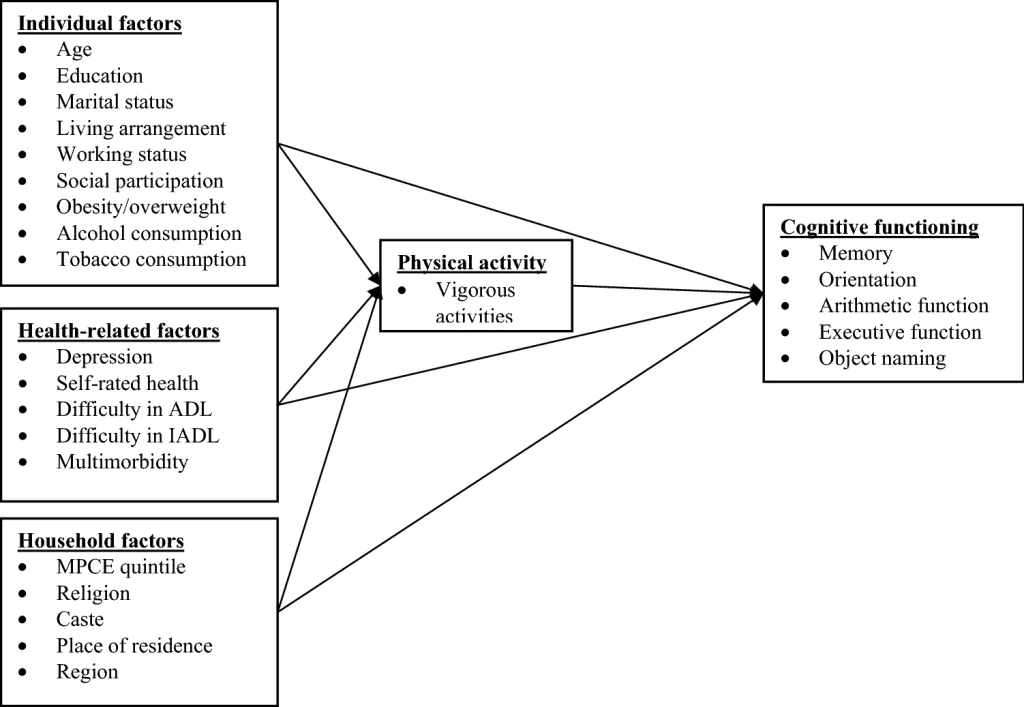Pursuing a PhD is surely a challenge. Many people struggle to maintain a work-life balance, and spend time with their family and loved ones, while also engaging in hobbies. So, what even is there to say about regular workouts? This issue stirred a lively debate on Reddit, where users shared their personal input on the topic and even provided some gym and lifestyle routines.

✅ AI Essay Writer ✅ AI Detector ✅ Plagchecker ✅ Paraphraser
✅ Summarizer ✅ Citation Generator
Key Takeaways:
- Physical Health & Cognitive Function: Physical activity is intrinsically linked to cognitive function. Regular exercise and maintaining a healthy lifestyle prove beneficial for cognitive health, especially as one ages.
- Challenges of Staying Fit During PhD: Many PhD students face difficulties in managing their physical health due to the rigors of academic work, leading to weight gain, reduced non-exercise activity, and unhealthy eating habits.
- Self-Care for PhD Students: To navigate the challenging journey of a PhD, students need to adopt a holistic self-care approach. This includes routine exercise, maintaining a balanced diet, setting boundaries between work and rest, and effectively managing time.
Stressing About Rapidly Gaining Weight
At the start of the thread, OP shares that they used to be incredibly fit during their master’s studies and also during the initial year of their PhD. However, they confess to having gained a significant amount of weight over the past two years. Despite their best efforts to exercise regularly, the author finds it to be a constant battle that requires a lot of energy they feel they don’t possess. This extends to other hobbies, but none seem to have as profound an impact on the OP’s well-being and self-image as fitness does.
The user seemed even desperate:
“Please tell me I’m not the only one. Please tell me it’s getting better after graduation.”
The author already anticipates the comments coming from “gym rats” who easily do unimaginable routines, but the issue lies far deeper.
Explaining the Connection Between Physical Activity and Cognitive Function
Some scientific reports state that physical activity and cognitive function are closely linked. One of the main findings suggests that regular exercise and an overall healthy lifestyle are beneficial for your brain, so to speak, in the long run. Cognitive functioning basically encompasses a range of mental abilities, such as thinking, learning, language, reasoning, and attention (all very important for not only pursuing your PhD but also living a comfortable life).
As people age, there’s a decline in cognitive abilities, leading to issues like cognitive impairment. This might affect the relationship between a healthy body and a healthy mind. The findings of the study revealed that frequent physical activity was associated with better cognitive functioning in both men and women. After adjustments for various factors, regularly active older men and women showed increases of 0.98 and 1.32 points respectively in cognitive function scores.

In conclusion, regular physical activity appears to have a positive effect on cognitive health among older adults, highlighting its potential as a lifestyle choice to encourage healthy cognitive aging.
Redditors Share Their Tips and Tricks on Staying Fit While Studying
Commenters flocked to the post and expressed empathy for OP since those types of situations can be of extreme influence on the person. It is very easy to fall into a pit of feeling bad about yourself when you can’t break the cycle due to constant exhaustion. One of the users mentioned having gained a significant amount of weight during their master’s program, only to get fit afterward. However, when they started their PhD, they gained the weight back within the first year. The user emphasizes that while fitness often improves after graduation, postponing one’s health and well-being until then isn’t ideal. They point out that a PhD program can last for several years; waiting until it’s over to prioritize health means enduring extended periods of low self-esteem, which can negatively impact mental health and the PhD journey overall. They also shared what may be the main reason behind gaining weight during that time:
“A key reason why I think PhD students gain weight though, is a huge decrease in NEAT (Non-Exercise Activity Thermogenesis) from sitting around reading/writing papers or working at a PC all day, comfort eating or eating whatever is available due to time constraints and periods of increased stress.”
The user warns that the deeper one sinks into neglecting their health, the harder it becomes to recover. Thus, gaining excessive weight means enduring many weeks on a calorie deficit, which the commenter finds challenging. They highlight how easy it is to gain weight rapidly, especially under stress or with binge eating and inactivity.
The commenter poses an important although rhetorical question: What comes after the PhD? They suggest that life will always present challenges, be it work, postdoc positions, family aspirations, or general life stress, so it’s better to get a grip now.
Other users suggest getting back into shape by picking up cardio exercises like walking, running, riding a bike, etc., since it doesn’t appear as hard as weight training but can bring noticeable results.
“I enjoy doing low intensity workouts on busy days. Yoga and walking have been clutch because I don’t feel so spent after and can continue to focus. These can both be done while remaining productive although I do recommend giving yourself a break to do them.”
Getting back to shape isn’t only centered around regular workouts since you also have to monitor your food intake. When you have to work almost every hour of your day and complete necessary household chores, it’s easy to slip into harmful habits like eating whatever you find during a busy day or even binge eating. The National Eating Disorders Association defines binge eating as “recurrent episodes of eating large quantities of food (often very quickly and to the point of discomfort); a feeling of a loss of control during the binge; experiencing shame, distress or guilt afterward”. This issue can lead to further physical and mental health problems, which is far from a productive environment.

One of the Redditors under the post shared their experience with irregular eating habits and how they’ve tried to control themselves to avoid escalating the problem:
“I was quite strict with myself – and I had a no food at my desk rule. I would have a morning and an afternoon coffee break in a cafe, and if I wanted a snack, then that was when I would have it.”
Most of the other users share a sentiment that it’s absolutely vital to tackle this issue now because further ignorance can sprout its negative impact on other areas of life. If the person can’t exercise now because of a time crunch and stress, then what if something else happens? Kids, family issues, employment, and so on – almost everything in this life can doom us to an unhealthy lifestyle.
“There will always be challenges and you need to develop good habits now and have the resiliency to not let yourself go when life gets challenging. You have to make the time and effort, the same way you do to do the experiments, read the papers, etc.”
“The thing is, you’ll get more energy when you do exercise. The longer you don’t, the more drained you will feel. The first steps to get in there are very hard when you are feeling tired like this, but I promise that you will slowly get more energy.”
As we can see, completing a PhD is challenging, and to navigate this journey effectively, maintaining an exercise routine and healthy eating is vital. Regular exercise not only helps manage stress but also sharpens focus, enabling better research sessions. Apart from that, a nutritious diet ensures our brain gets the right fuel to stay alert and productive, which is exactly what you need in an academically challenging environment. Without these positive habits, people risk feeling exhausted and less efficient.
Practising Self-Care as a PhD Student
Navigating a PhD program requires more than just academic diligence; it demands a holistic approach to self-care to ensure mental, emotional, and physical well-being. Here are some self-care practices every PhD student should consider adopting, so that everything will be just a bit easier:
- Routine Exercise: Whether it’s a brisk walk, yoga, or a gym session, regular physical activity can alleviate stress, boost mood, and enhance cognitive function.
- Balanced Diet: Prioritize a diet rich in whole foods, lean proteins, and healthy fats. Your brain needs proper nutrients to function at its peak.
- Mindfulness and Meditation: Engage in mindfulness practices or meditation to stay grounded, enhance focus, and reduce anxiety.
- Set Boundaries: Allocate specific times for work, rest, and recreation. Avoid the temptation to work around the clock.
- Regular Sleep: Aim for 7-9 hours of sleep. A rested mind is more creative, attentive, and resilient.
- Social Connections: Maintain relationships outside of your academic circle. Social interactions can provide emotional support and a fresh perspective.
- Hobbies: Engage in activities unrelated to your research. It can be a form of creative expression and a break from academic rigor.
- Stay Hydrated: Drink plenty of water throughout the day. Dehydration can affect cognitive abilities and energy levels.
- Seek Counseling or Therapy: If feelings of being overwhelmed persist, consider seeking professional help. Many universities offer counseling services tailored for graduate students.
- Time Management: Use tools and strategies to organize your tasks, helping reduce feelings of being overwhelmed.
- Limit Caffeine and Alcohol: While they might seem like quick fixes, over-reliance can have negative effects on sleep and mood.
Adopting these self-care practices can significantly enhance your PhD journey, making it not just an intellectual adventure but also a period of personal growth and well-being.
Follow us on Reddit for more insights and updates.





Comments (0)
Welcome to A*Help comments!
We’re all about debate and discussion at A*Help.
We value the diverse opinions of users, so you may find points of view that you don’t agree with. And that’s cool. However, there are certain things we’re not OK with: attempts to manipulate our data in any way, for example, or the posting of discriminative, offensive, hateful, or disparaging material.